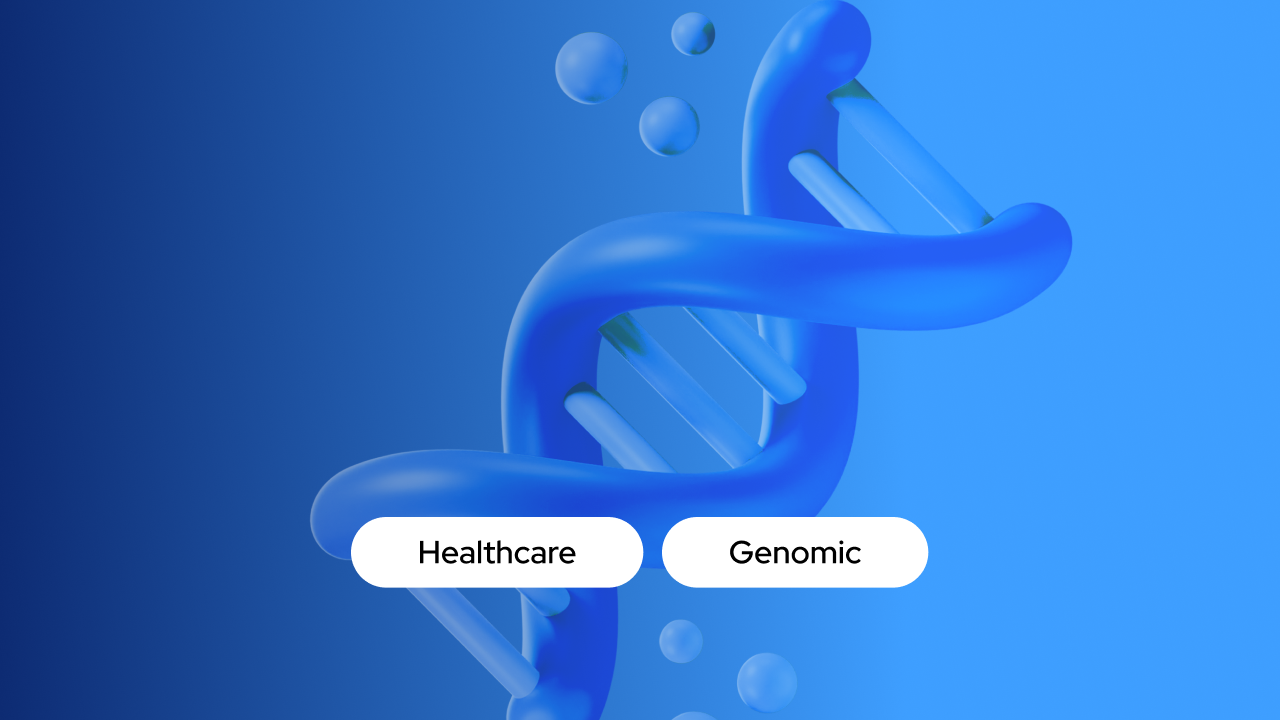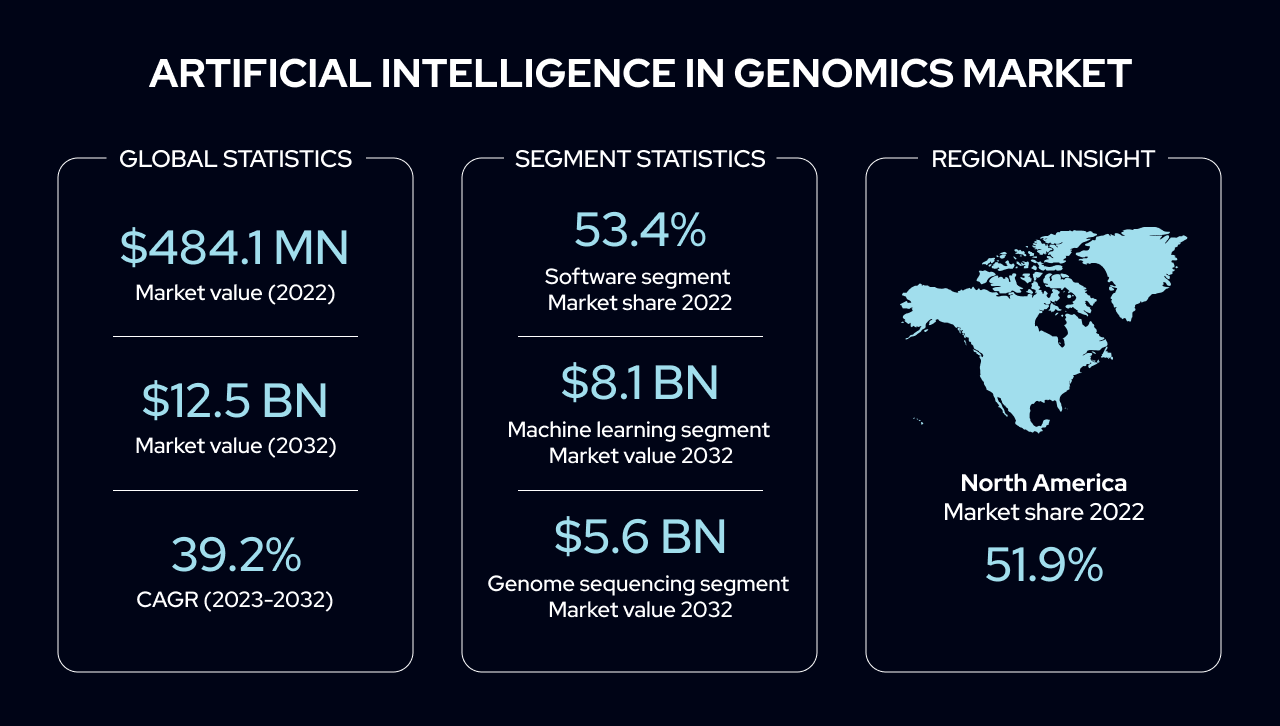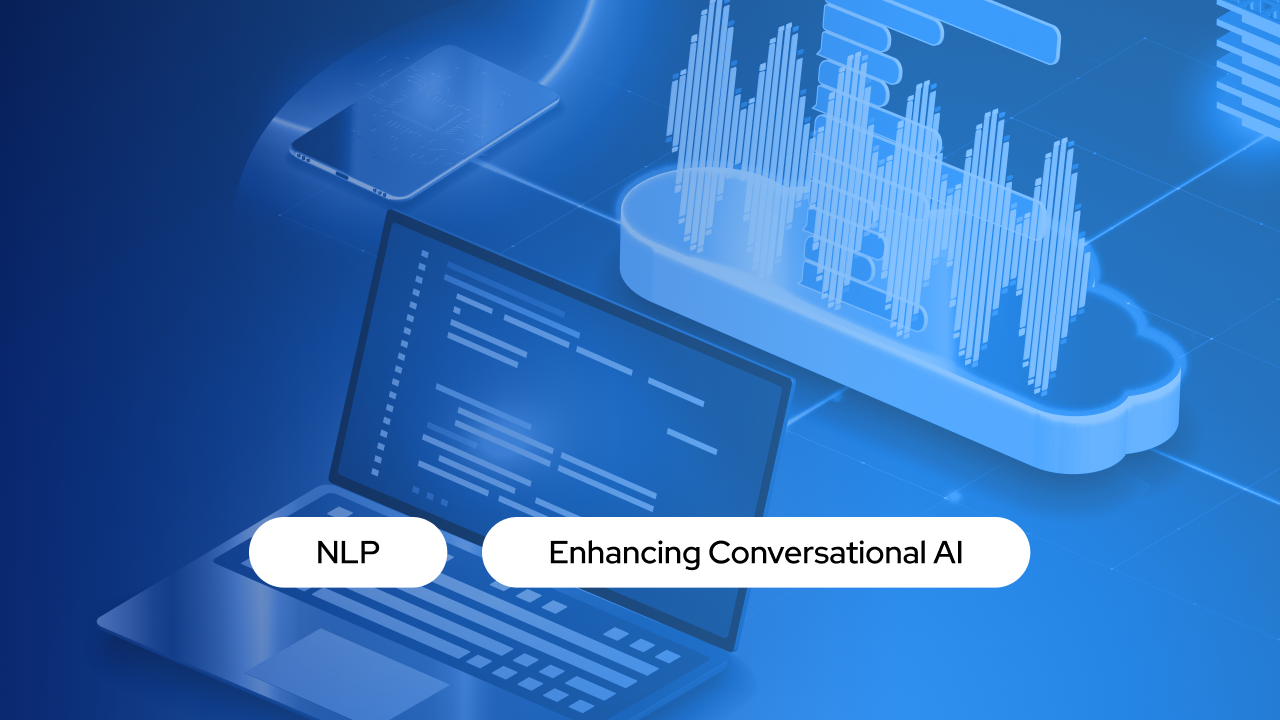AI as a Catalyst in Genetic Research for Personalized Medicine

Recent advancements in medical technology, particularly in genomics and artificial intelligence (AI), have revolutionized healthcare. This has led to the emergence of personalized medicine, which customizes medical treatments based on individual genetic profiles. At the heart of this shift is AI-driven genomic analysis, promising more accurate diagnoses, targeted treatments, and better patient outcomes.
As of 2022, the Artificial Intelligence in Genomics market was valued at $484.1 million and is projected to grow at a rate of 39.2%, reaching approximately $12.5 billion by 2032.

The Significance of Genomics in Customized Healthcare
Customized healthcare acknowledges each patient's uniqueness, moving away from a generic approach. By examining a person's genome, healthcare providers can understand their genetic predispositions and disease risks, aiding in making informed treatment decisions.
The human genome has around 71 million missense variants, with an average person carrying over 9,000 of these. While most are harmless, some are associated with diseases like sickle cell anemia, cystic fibrosis, or complex conditions like type 2 diabetes, which may result from minor genetic changes.
Of the 4 million missense variants identified in humans, only 2% have been definitively classified as pathogenic or benign, a process that has historically been slow and expensive. Studying a single variant can take months.
Google DeepMind's AlphaMissense, a machine learning model, has revolutionized this process. It can swiftly evaluate missense variants and predict their disease-causing potential with 90% accuracy, outperforming traditional methods. AlphaMissense, inspired by DeepMind's AlphaFold, which predicts protein structures, functions similarly to large language models like OpenAI's ChatGPT, but focuses on analyzing missense variants.
The Impact of AI in Genomic Analysis
AI, especially machine learning algorithms, plays a crucial role in managing the vast and complex genomic data, assisting clinicians in interpretation and application. AI in genomics identifies patterns, mutations, and genetic variations related to diseases or treatment responses. Key applications include:
- Personalized Diagnoses: AI examines genomic data to identify genetic markers of diseases for early and accurate diagnosis.
- Tailored Treatments: AI predicts patient responses to medications or therapies based on genetic makeup, aiding in effective treatment selection and minimizing side effects.
- Cancer Genomics: AI helps oncologists identify genetic mutations in cancer, guiding targeted therapy choices.
- Pharmacogenomics: AI predicts drug metabolism in individuals, helping to customize medication dosages and avoid adverse reactions.
- Disease Risk Assessment: AI estimates the risk of developing certain diseases, promoting preventive measures and lifestyle changes.
Future of Genetic Mutation Detection
AI algorithms are adept at predicting the impact of mutations on gene expression and prioritizing regulatory variants. Future advancements may enhance these models for accuracy and utility in different genetic contexts, and new models may be developed.
A notable development is the DEMINING method by Fu et al. (2023), which identifies disease-linked genetic mutations from RNA-seq datasets. Applied to acute myeloid leukemia (AML) patients, DEMINING revealed previously unnoticed mutations in AML-related gene loci.
Conclusion
AI is integral to advancing personalized medicine, analyzing genomic data to pinpoint individual-specific disease risks, treatment responses, and therapeutic strategies. It integrates various omics data for a deeper understanding of biological processes and disease mechanisms, facilitating therapeutic target identification and drug discovery. AI also develops precise models for disease forecasting involving genetics and environmental factors, significantly contributing to drug development and personalized medicine.




